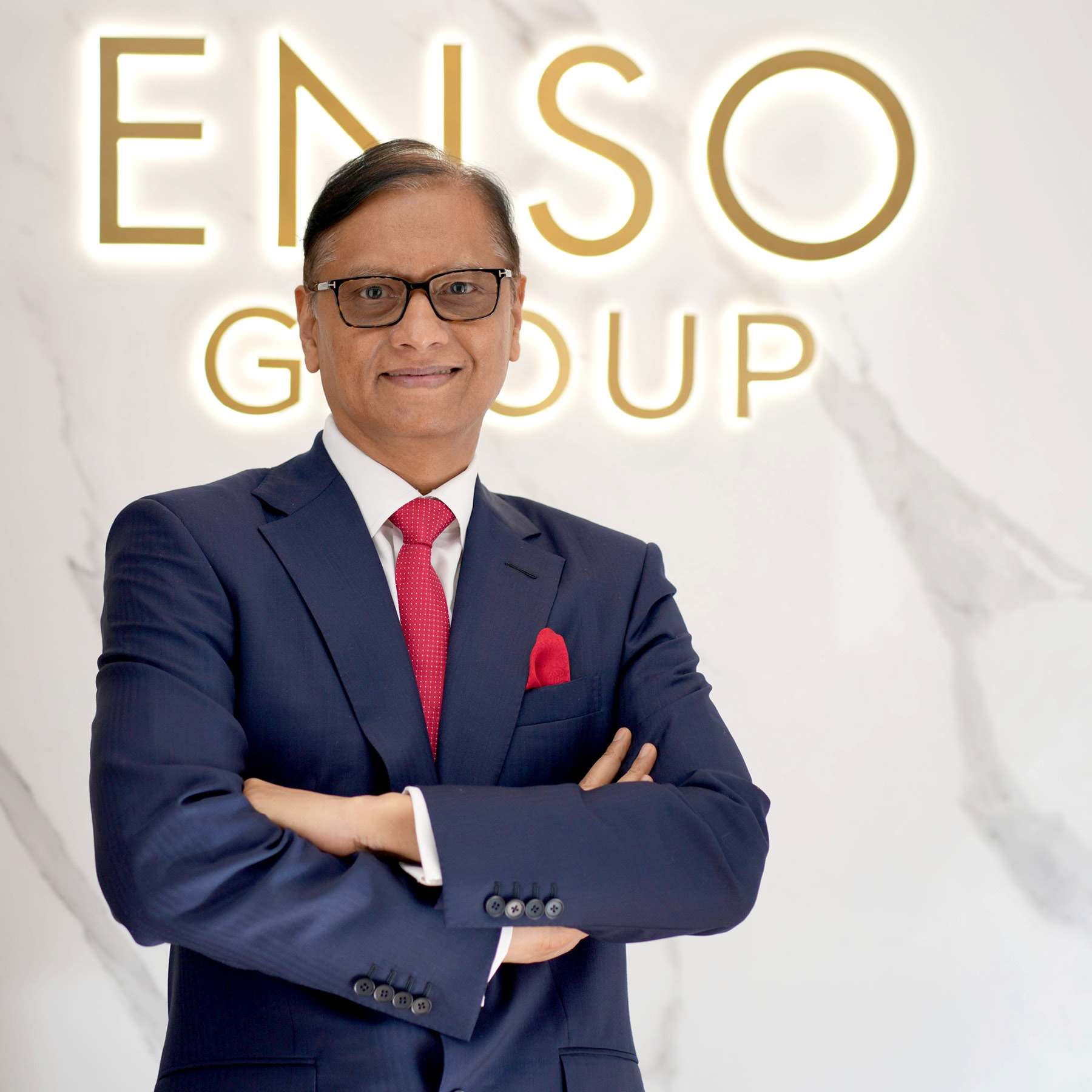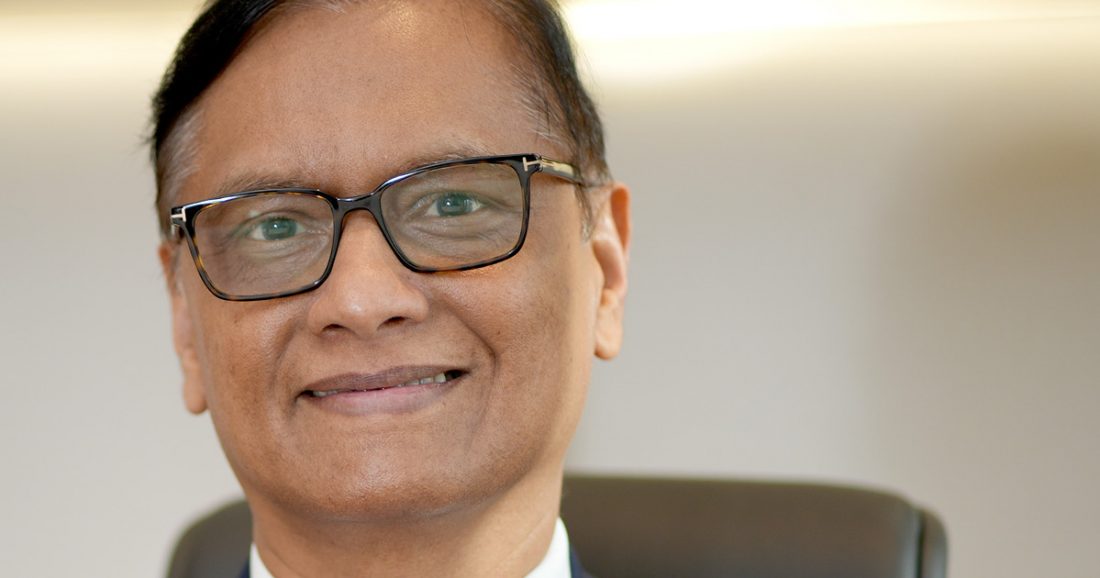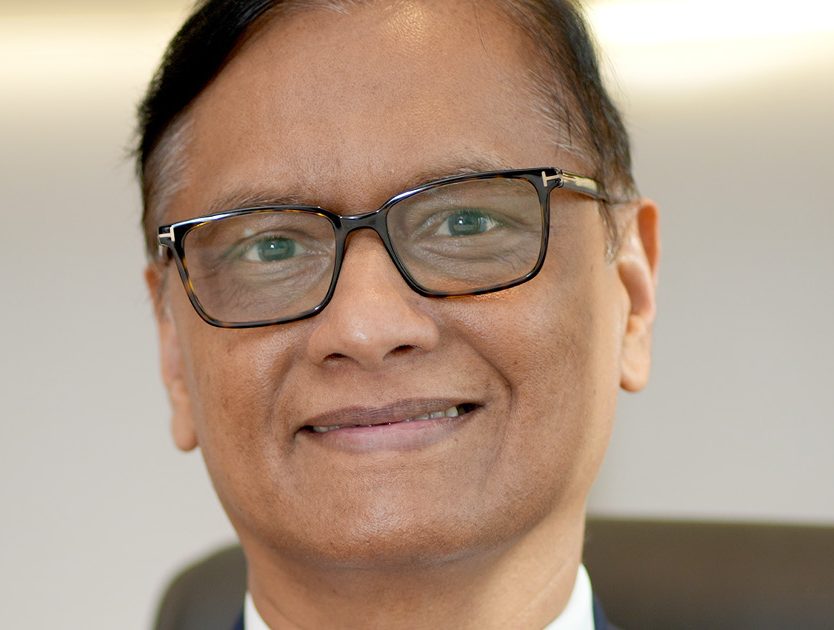Next year, Mumbai-based Enso Group will celebrate its 20th anniversary, and its story is one of extraordinary expansion and growth.
From its self-described humble beginnings, when it acquired oil blocks in Jordan for exploration and production, the business has consistently entered new industries and expanded into new markets to become what it is today; a globally diversified conglomerate.

“As an organization, we actively seek opportunities to broaden our footprint.”
Enso’s interests now span energy, real estate, IT, mining, trading and petroleum products, with a presence in more than 10 countries. These range from the development of hospitality assets in the Indian state of Goa to mining for potash in the lands of the Canadian First Nations people in Saskatchewan.
Not bad for a company less than 20 years old. But then it does have Vinay Maloo as its Chair. As the Enso website states: ‘Leaders don’t fit in, they stand out.’
A global force
A stalwart of Indian business, Maloo founded Himachal Futuristic Communication in 1988, one of India’s first private telecommunications companies, which commanded a market capitalization of USD$4 billion at the turn of the 21st century.
He soon turned his attention to Enso, building the company into a global force.
Given what has occurred over the past 19 years, it’s no surprise to hear that continuous growth is among Enso’s core values. Critically, however, that does not mean vanity growth, where expansion is the be all and end all.

“For us, continuous improvement signifies a commitment to ongoing enhancement in all aspects of the business.”
“As an organization, we actively seek opportunities to broaden our footprint,” Maloo explains to The CEO Magazine. “This includes identifying and pursuing new markets, geographical regions and customer segments.
“But growth without improvement can be dangerous. For us, continuous improvement signifies a commitment to ongoing enhancement in all aspects of the business. This helps us develop a culture of excellence, where every process, product and individual is constantly evolving to meet and exceed expectations.”
One of the newest sectors for Enso is lubricants, with the company soon to start manufacturing Gazprom Neft products in India. It’s this division that is held up by the company as a shining example of its approach to operational excellence.
Careful expansion
Maloo explains that when Enso entered the lubricants distribution business it faced many challenges, spanning a number of sectors including logistics, warehousing, human resources, marketing and packaging.
“There was a lot of confusion,” he recalls. “We took it one step at a time. First we detailed the end-to-end journey of the lubricant product and found it has more than 40 steps. When you have such a complex supply chain you have difficulties mapping them and risk losing value at each step.”
The solution was to start analyzing the journey at an operational level, identifying pain points, increasing transparency and enhancing communication at each step.
“The results are fantastic,” Maloo says. “We know we can further improve and we are continuously working on that. The key is system thinking, highlighting the bottlenecks and taking steps to rectify them.
“This is not a one-time thing, it’s an iterative process and when you bring in transparency and quick operational action you build trust and this is exactly what we’ve done. Our partners know they can count on us.”

“I believe we are an agile organization.”
Not that it has all been plain sailing for Maloo and Enso, and he acknowledges that there have been difficult times. But, as with any successful and well-run business, opportunities can emerge from adversity and the key is to learn from those experiences.
“We are regularly analyzing our strategy, but we make sure we don’t get into analysis paralysis,” Maloo explains. “We take feedback, reflect and swiftly move to action. I believe we are an agile organization.”
As for his personal achievements, Maloo turns to a phrase in the 700-verse Hindu scripture, Bhagwat Gita.
Translating the reading, he says: “You have a right to perform your prescribed duties, but you are not entitled to the fruits of your actions. Never consider yourself to be the cause of the results of your activities, nor be attached to inaction.”
Inaction is something Maloo can hardly be accused of. And there remains much to do, with the launch of Info Profile, a new-age social networking platform among its plans. No matter what the future holds, Maloo is looking forward to making the most of it.
“Opportunities don’t happen,” he concludes. “You create them.”




